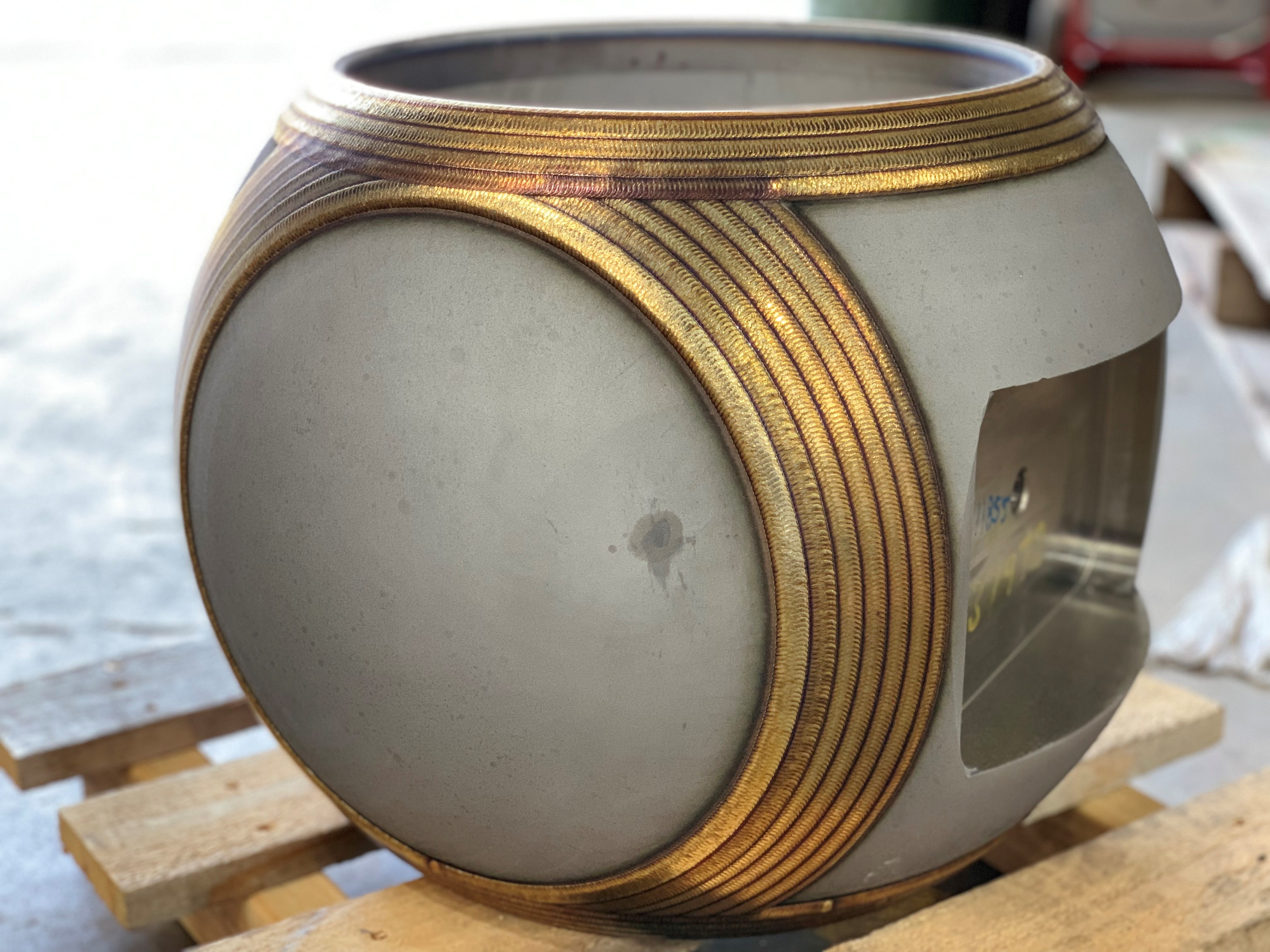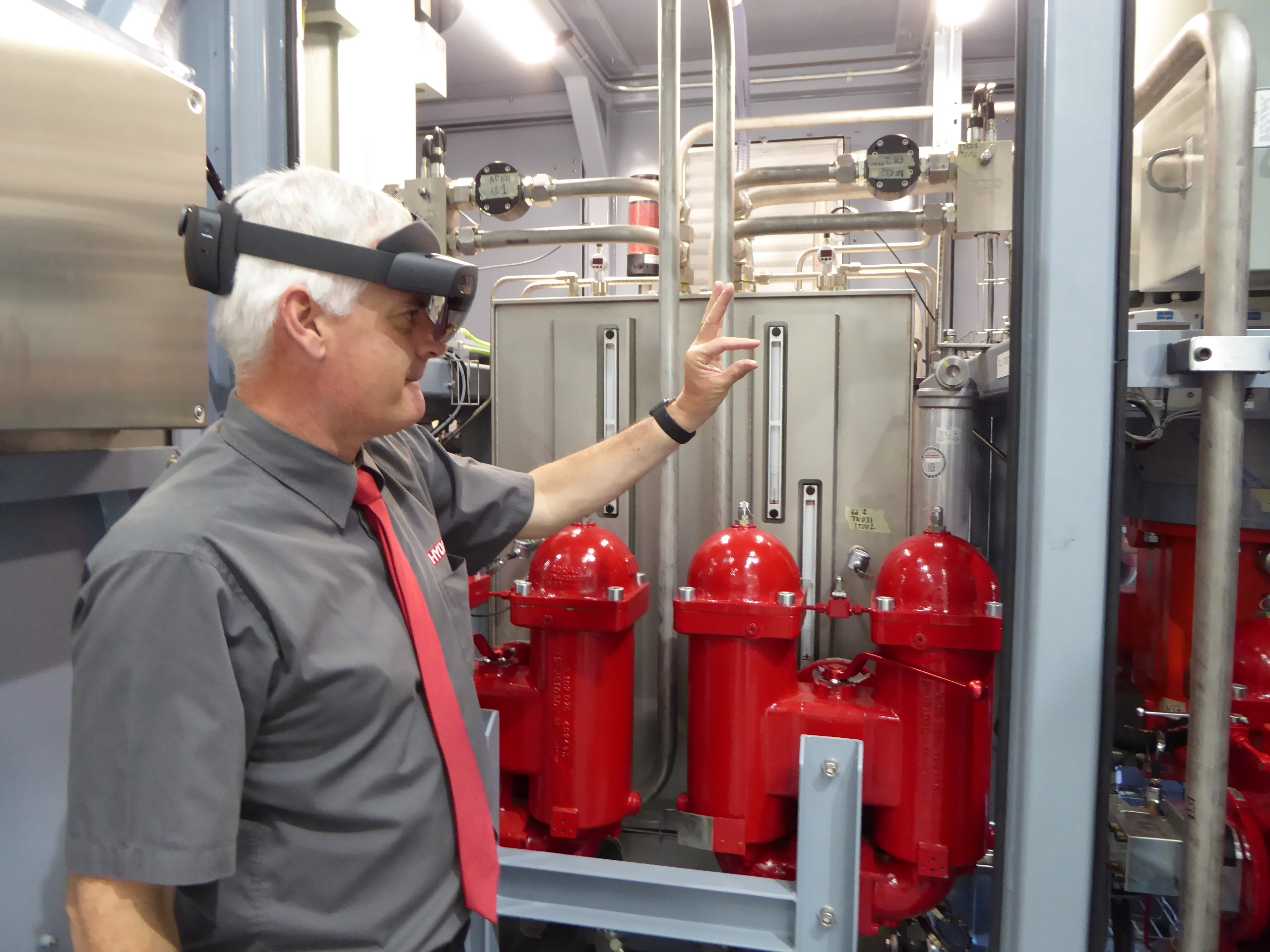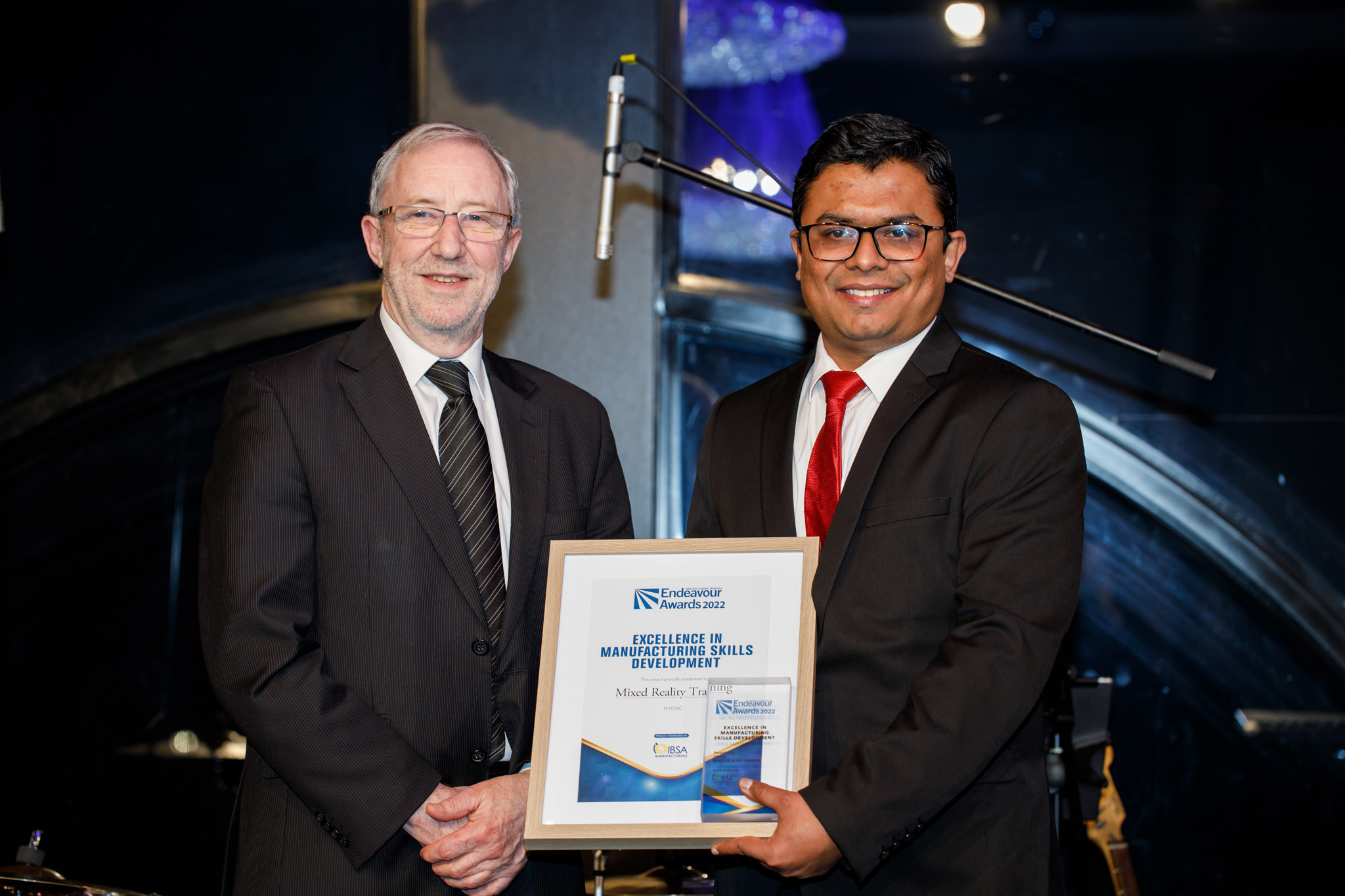Victoria boasts more than 725,000 small or medium enterprises (SMEs) – over 30 per cent of Australia's total. Founded in 1974, Deakin University advances research and knowledge transfer across metropolitan and regional Victoria, with campuses in Melbourne, Geelong and Warrnambool.
Deakin has rapidly established a reputation for industry collaboration. The university has had great success partnering with SMEs on research and development projects through CSIRO SME Connect.
A culture of collaboration
Deakin has delivered 82 SME Connect projects, with a total value of over $8 million. During these projects, Deakin researchers have teamed up with SMEs to overcome diverse practical challenges across industries.
Deputy Vice-Chancellor Research, Alfred Deakin Professor Julie Owens, says that SME Connect is a key enabler of Deakin’s support for SME innovation.
"The SME Connect program has been invaluable in providing benefit to companies to progress their ideas to commercial outcomes. From application to completion, the program is the best within this space, providing a clear pathway to both companies and universities to engage and move quickly."
“A further benefit from the program is that it opens up pathways for growing collaboration between business and the university beyond the initial connection,”
Alfred Deakin Professor Julie Owens, Deputy Vice-Chancellor Research
“Deakin has had incredible success with a number of projects – including Callidus Welding and HYDAC – and we have every intention of continuing the fruitful relationship with SME Connect and the next generation of SMEs.”
Among other outcomes, Deakin’s partnerships with SMEs have expedited the commercialisation of transformative new technologies, products and services.
Forging enduring bonds
 Researchers from Deakin’s Institute for Frontier Materials (IFM) worked on a series of projects with Callidus Welding Solutions. This Perth-based company provides corrosion and erosion solutions for equipment in the oil and gas, mining, mineral processing, marine, and renewable energy industries.
Researchers from Deakin’s Institute for Frontier Materials (IFM) worked on a series of projects with Callidus Welding Solutions. This Perth-based company provides corrosion and erosion solutions for equipment in the oil and gas, mining, mineral processing, marine, and renewable energy industries.
Equipment used in these sectors need to be highly reliable and able to withstand demanding applications and severe environmental conditions. For instance, in the hydrometallurgical plants used to extract minerals such as cobalt, nickel and gold from ore, critical reactor components must endure extremely high temperatures and pressures, physical erosion and abrasion, and exposure to corrosive acids. As a result, they eventually require increased maintenance and replacement to prevent plant failure.
Callidus Welding Solutions sought to work with a research organisation to develop ways to make these components last longer.
“Callidus Welding Solutions wanted to partner with a university for material development,” said lead researcher Professor Daniel Fabijanic.
“To test the working relationship, we decided to start with a short-term project to understand process-structure-property relationships in a titanium surface-modification process they had under development. During the initial project we conceptualised innovations to the process. These were then successfully developed and tested during a second project.”
“These projects were the springboard to larger collaborations to commercialise the outcomes and expand into new markets.”
The novel designs and surface modification technologies developed through the partnership have the potential to double the lifespan of critical reactor components. The new processes and products are now deployed in hydrometallurgy plants – where they are improving efficiency and reliability, reducing overall operating costs, and could potentially save plant operators millions of dollars in lost production time each year.
“Some of the project outcomes have since been further developed and commercialised,” said Joe Ellis, Callidus Welding Solutions Operations Manager. “The patented technology is now being used in the field with huge benefits to the end user in regard to equipment reliability and safety of the plant.”
This partnership was just one of the many research collaborations Deakin’s Institute for Frontier Materials has undertaken with facilitation from SME Connect. Professor Sally McArthur, IFM Director, considers working with SMEs essential to the institute’s mission to create positive impacts through the advancement of materials science.
“Australian SMES have great ideas and knowhow, but often lack access to the specialised personnel, infrastructure and research knowledge that can de-risk or prototype a project,” she said. “This is where universities can step in to fill the gap.”
“Within IFM, the SME Connect has enabled us to rapidly build up partnerships with industry and initiate new projects. These have included opportunities to validate, and determine effective routes for, the commercial implementation of technologies and materials,” said Sally.
“The main benefits of SME Connect are that it is rapid, well-connected, and targeted.”
“The program also de-risks industry-research collaborations because the projects are managed by the SME Connect team and run to a set of agreed milestones and deliverables, ensuring that there is a win-win for all parties. SME Connect has been an excellent match for IFM.”
Pumping up industry transformation
For fluid power engineering and motion control company HYDAC, collaboration with Deakin gave rise to a revolutionary new training product, while simultaneously tackling one of the industry’s most enduring problems.
 Hydraulic systems are crucial within many industries, including power generation, mining, manufacturing, oil and gas, and construction. But mistakes in their maintenance or operation can have catastrophic results – from significant plant downtime, costly damage to equipment, environmental hazards and even serious injury or death.
Hydraulic systems are crucial within many industries, including power generation, mining, manufacturing, oil and gas, and construction. But mistakes in their maintenance or operation can have catastrophic results – from significant plant downtime, costly damage to equipment, environmental hazards and even serious injury or death.
Training new staff to work with hydraulic systems has long been a serious challenge. Traditionally, training requires extensive face-to-face onsite instruction.
“Currently, Australia has a significant shortage of workers qualified to maintain hydraulic machinery,” said Eddie Alves, HYDAC Marketing Manager. “In 2020, we partnered with Deakin University to bridge this skills gap.”
Over two projects, HYDAC and Deakin researchers developed a virtual and augmented reality training solution that brings students and instructors together in a virtual space. Within this mixed reality, students can virtually interact with complex hydraulic equipment in functioning systems. This overcomes the challenges of distance training, making quality instruction and experience more accessible. The virtual plant can also simulate hazardous events that couldn’t otherwise be safely demonstrated to students.
“Partnering with Deakin allowed us to explore and develop the technology to continue offering our training during the pandemic, but in a unique and enhanced environment that benefits our students,” said Eddie.
“Bringing together designers from Deakin Motion Lab, HCI (human-computer interaction) experts from the School of IT at Deakin, and staff at HYDAC with their profound knowledge in engineering, marketing, and hydraulics training enabled a highly innovative and effective partnership,”
Professor Stefan Greuter, Director of the Deakin MotionLab
“The close collaboration between these diverse teams has not only led to the creation of award-nominated prototypes but has also facilitated the commercialisation of the work as HYDAC Mixed Reality training,” said Stefan. “Additionally, it has helped secure substantial funding, including support from the Innovative Manufacturing Cooperative Research Centre (IMCRC), which will further fuel the partnership and contribute to the development of future innovations.”
HYDAC’s new mixed reality training solution has expanded HYDAC’s commercial offerings and opened new markets.
“We support the industry with training solutions that teach and guide maintenance staff on how safely service and maintain important hydraulic equipment,” said Eddie. “It has also helped support our reputation as an industry leader and forward-thinking business that invests in technological innovation. To continue the process of knowledge transfer, we have since hired two PhD students from Deakin, who are helping us further develop the program.”
“[SME Connect programs] offer opportunities for businesses to upskill their workforce and for researchers to gain valuable industry experience. This contributes to the development of a highly skilled and adaptable labour force in Australia,” said Stefan. 
“The CSIRO facilitator’s involvement in the collaboration significantly enhanced its overall effectiveness and efficiency, particularly by providing an objective perspective, guiding goal setting, and fostering knowledge sharing,” he added.
Both Stefan and Eddie are keen to emphasise the importance of industry-research collaboration and investing in Australian SME innovation.
“SME Connect connected us with an experienced university partner with the know-how and capacity to develop the solution and progress the work from prototype to commercialisation,” said Eddie. “The program assisted us immensely – we couldn’t achieve the results we’ve had on our own.”
“Ultimately, the SME Connect approach contributes to the overall growth of the Australian economy through the development of innovative products and services, the creation of new jobs, and the advancement of knowledge and technology,” said Stefan.
Victoria boasts more than 725,000 small or medium enterprises (SMEs) – over 30 per cent of Australia's total. Founded in 1974, Deakin University advances research and knowledge transfer across metropolitan and regional Victoria, with campuses in Melbourne, Geelong and Warrnambool.
Deakin has rapidly established a reputation for industry collaboration. The university has had great success partnering with SMEs on research and development projects through CSIRO SME Connect.
A culture of collaboration
Deakin has delivered 82 SME Connect projects, with a total value of over $8 million. During these projects, Deakin researchers have teamed up with SMEs to overcome diverse practical challenges across industries.
Deputy Vice-Chancellor Research, Alfred Deakin Professor Julie Owens, says that SME Connect is a key enabler of Deakin’s support for SME innovation.
"The SME Connect program has been invaluable in providing benefit to companies to progress their ideas to commercial outcomes. From application to completion, the program is the best within this space, providing a clear pathway to both companies and universities to engage and move quickly."
“A further benefit from the program is that it opens up pathways for growing collaboration between business and the university beyond the initial connection,”
Alfred Deakin Professor Julie Owens, Deputy Vice-Chancellor Research
“Deakin has had incredible success with a number of projects – including Callidus Welding and HYDAC – and we have every intention of continuing the fruitful relationship with SME Connect and the next generation of SMEs.”
Among other outcomes, Deakin’s partnerships with SMEs have expedited the commercialisation of transformative new technologies, products and services.
Forging enduring bonds
Researchers from Deakin’s Institute for Frontier Materials (IFM) worked on a series of projects with Callidus Welding Solutions. This Perth-based company provides corrosion and erosion solutions for equipment in the oil and gas, mining, mineral processing, marine, and renewable energy industries.
Equipment used in these sectors need to be highly reliable and able to withstand demanding applications and severe environmental conditions. For instance, in the hydrometallurgical plants used to extract minerals such as cobalt, nickel and gold from ore, critical reactor components must endure extremely high temperatures and pressures, physical erosion and abrasion, and exposure to corrosive acids. As a result, they eventually require increased maintenance and replacement to prevent plant failure.
Callidus Welding Solutions sought to work with a research organisation to develop ways to make these components last longer.
“Callidus Welding Solutions wanted to partner with a university for material development,” said lead researcher Professor Daniel Fabijanic.
“To test the working relationship, we decided to start with a short-term project to understand process-structure-property relationships in a titanium surface-modification process they had under development. During the initial project we conceptualised innovations to the process. These were then successfully developed and tested during a second project.”
“These projects were the springboard to larger collaborations to commercialise the outcomes and expand into new markets.”
The novel designs and surface modification technologies developed through the partnership have the potential to double the lifespan of critical reactor components. The new processes and products are now deployed in hydrometallurgy plants – where they are improving efficiency and reliability, reducing overall operating costs, and could potentially save plant operators millions of dollars in lost production time each year.
“Some of the project outcomes have since been further developed and commercialised,” said Joe Ellis, Callidus Welding Solutions Operations Manager. “The patented technology is now being used in the field with huge benefits to the end user in regard to equipment reliability and safety of the plant.”
This partnership was just one of the many research collaborations Deakin’s Institute for Frontier Materials has undertaken with facilitation from SME Connect. Professor Sally McArthur, IFM Director, considers working with SMEs essential to the institute’s mission to create positive impacts through the advancement of materials science.
“Australian SMES have great ideas and knowhow, but often lack access to the specialised personnel, infrastructure and research knowledge that can de-risk or prototype a project,” she said. “This is where universities can step in to fill the gap.”
“Within IFM, the SME Connect has enabled us to rapidly build up partnerships with industry and initiate new projects. These have included opportunities to validate, and determine effective routes for, the commercial implementation of technologies and materials,” said Sally.
“The main benefits of SME Connect are that it is rapid, well-connected, and targeted.”
“The program also de-risks industry-research collaborations because the projects are managed by the SME Connect team and run to a set of agreed milestones and deliverables, ensuring that there is a win-win for all parties. SME Connect has been an excellent match for IFM.”
Pumping up industry transformation
For fluid power engineering and motion control company HYDAC, collaboration with Deakin gave rise to a revolutionary new training product, while simultaneously tackling one of the industry’s most enduring problems.
Hydraulic systems are crucial within many industries, including power generation, mining, manufacturing, oil and gas, and construction. But mistakes in their maintenance or operation can have catastrophic results – from significant plant downtime, costly damage to equipment, environmental hazards and even serious injury or death.
Training new staff to work with hydraulic systems has long been a serious challenge. Traditionally, training requires extensive face-to-face onsite instruction.
“Currently, Australia has a significant shortage of workers qualified to maintain hydraulic machinery,” said Eddie Alves, HYDAC Marketing Manager. “In 2020, we partnered with Deakin University to bridge this skills gap.”
Over two projects, HYDAC and Deakin researchers developed a virtual and augmented reality training solution that brings students and instructors together in a virtual space. Within this mixed reality, students can virtually interact with complex hydraulic equipment in functioning systems. This overcomes the challenges of distance training, making quality instruction and experience more accessible. The virtual plant can also simulate hazardous events that couldn’t otherwise be safely demonstrated to students.
“Partnering with Deakin allowed us to explore and develop the technology to continue offering our training during the pandemic, but in a unique and enhanced environment that benefits our students,” said Eddie.
“Bringing together designers from Deakin Motion Lab, HCI (human-computer interaction) experts from the School of IT at Deakin, and staff at HYDAC with their profound knowledge in engineering, marketing, and hydraulics training enabled a highly innovative and effective partnership,”
Professor Stefan Greuter, Director of the Deakin MotionLab
“The close collaboration between these diverse teams has not only led to the creation of award-nominated prototypes but has also facilitated the commercialisation of the work as HYDAC Mixed Reality training,” said Stefan. “Additionally, it has helped secure substantial funding, including support from the Innovative Manufacturing Cooperative Research Centre (IMCRC), which will further fuel the partnership and contribute to the development of future innovations.”
HYDAC’s new mixed reality training solution has expanded HYDAC’s commercial offerings and opened new markets.
“We support the industry with training solutions that teach and guide maintenance staff on how safely service and maintain important hydraulic equipment,” said Eddie. “It has also helped support our reputation as an industry leader and forward-thinking business that invests in technological innovation. To continue the process of knowledge transfer, we have since hired two PhD students from Deakin, who are helping us further develop the program.”
“[SME Connect programs] offer opportunities for businesses to upskill their workforce and for researchers to gain valuable industry experience. This contributes to the development of a highly skilled and adaptable labour force in Australia,” said Stefan.
“The CSIRO facilitator’s involvement in the collaboration significantly enhanced its overall effectiveness and efficiency, particularly by providing an objective perspective, guiding goal setting, and fostering knowledge sharing,” he added.
Both Stefan and Eddie are keen to emphasise the importance of industry-research collaboration and investing in Australian SME innovation.
“SME Connect connected us with an experienced university partner with the know-how and capacity to develop the solution and progress the work from prototype to commercialisation,” said Eddie. “The program assisted us immensely – we couldn’t achieve the results we’ve had on our own.”
“Ultimately, the SME Connect approach contributes to the overall growth of the Australian economy through the development of innovative products and services, the creation of new jobs, and the advancement of knowledge and technology,” said Stefan.
